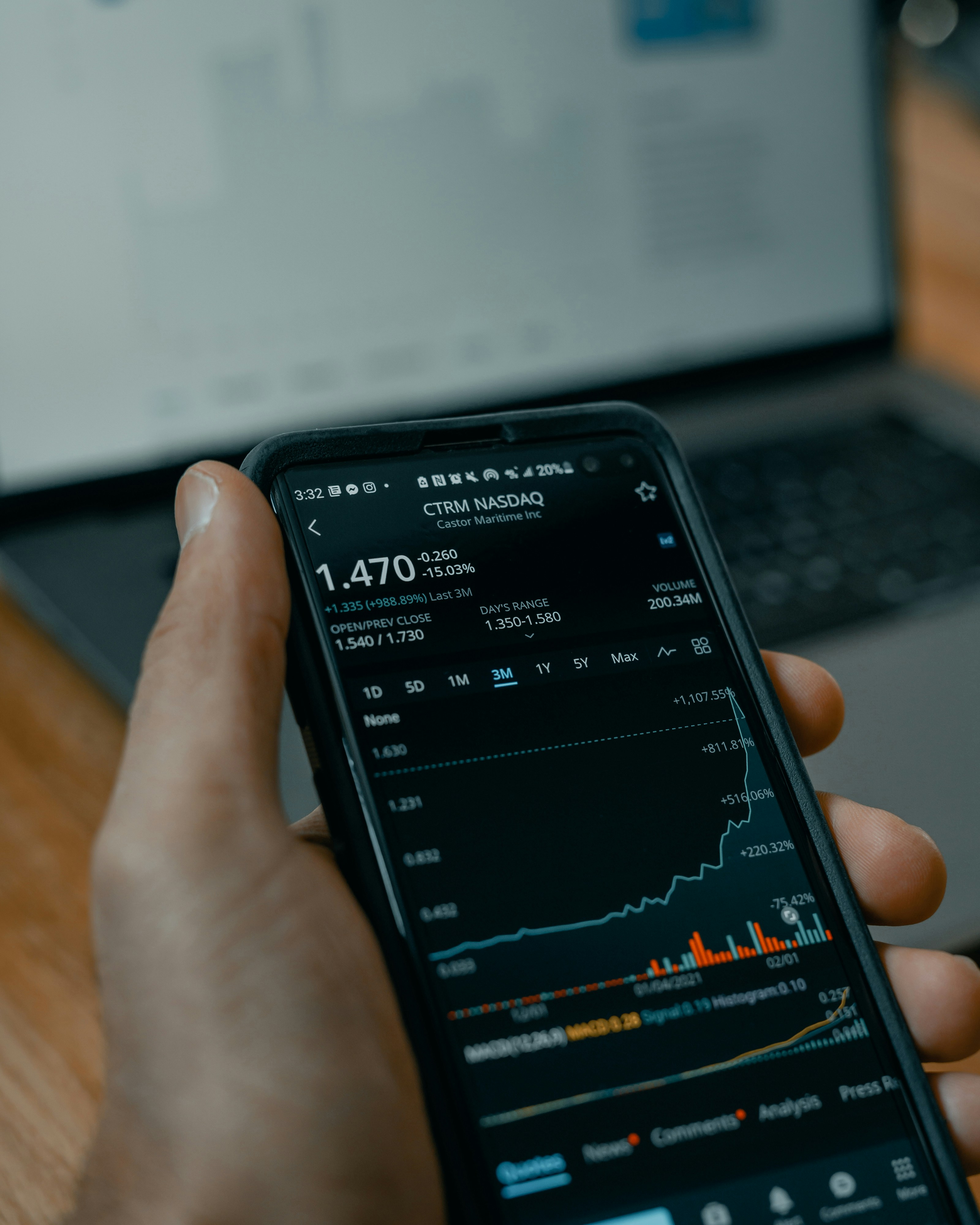What happened last week?
US
- Data showed that inflation stayed fairly steady, but the job market wobbled.
- Nebius struck a major AI deal with Microsoft.
- Oracle’s stock took off – but not everyone’s convinced about the valuation.
- Klarna made a solid return to public markets.
- Alibaba shares climbed after the firm spoke of plans to fund a major AI cloud expansion.
Europe
- The European Central Bank (ECB) held rates steady again, with the central bank’s president’s words suggesting that the cutting cycle may be over.
UK
- UK inflation expectations hit a two-year high as the economy stalled, stoking fears of “stagflation”.
Why It Matters
Headline US inflation was pretty much as expected, while producer prices – which influence the Fed’s favourite inflation gauge – dipped. Jobs data wasn’t quite as easy reading: August’s hiring barely budged, unemployment claims hit a four-year high, and previous payrolls were revised downward.
The ECB has made eight rate trims since last June. However, Europe’s central bank left rates unchanged for a second straight meeting, with the president saying risks are now “more balanced” and policy is “in a good place”. Markets got the message: investors are now betting the cuts are finished.
Meanwhile, UK households’ inflation expectations jumped to their highest in two years. Brits are bracing for price rises of 3.6% over the next year and 3.8% in five years – even though the economy stalled in July. The combination of resilient inflation and fading economic growth has sparked “stagflation” fears. Now, the Bank of England is in a bind. Cut rates too far, and it could fuel inflation. Keep policy too tight, and it risks choking an already fragile economy.
Dutch AI infrastructure firm Nebius announced a five-year deal with Microsoft, which could stretch to $19.4 billion. Investors pushed the stock up around 50% after the news, continuing a rally that’s already more than doubled the shares’ value this year. Nebius also plans to raise $3 billion for new data centres, supporting its spot in the AI infrastructure ranks. (Finimize analyst Russell profiled this stock over a month ago).
Investors rewarded Oracle, too. The US tech company unveiled strong orders for AI and cloud solutions, with massive contracts from major tech firms. (There’s also a rumoured $300 billion deal with OpenAI.) The stock rallied up to 40% as a result. Some investors are wary of the firm’s stretched valuation, mind you, as well as its plans to spend a ton of cash in the next few years.
Klarna had its long-anticipated initial public offering (IPO) after years of stuttering and false starts. The stock was priced at $40 but rose as high as 30% above the IPO price. They then settled around 15% higher than the initial price by the end of day one. That valued the fintech at just under $20 billion – and while that’s well below its 2021 peak, the listing was widely seen as a successful re-entry to the public eye.
Alibaba shares jumped more than 10% this week, extending this year’s 80% rally in 2025. The company raised $3.2 billion through a convertible bond (a sort of stock-bond hybrid) due 2032. Most of the proceeds will fund what it calls China’s biggest AI cloud buildout, with the rest supporting international stores and e-commerce. Seemingly, Alibaba’s AI ambitions were enough to offset investors’ concerns about its core retail business, which is still weighing on profit margins.
The Focus This Week: Investors’ Certainty Expires After This Month
The Fed’s chairman opened the door for a September rate cut a few weeks back. At the time, plenty of folks dismissed it as a nod to the US president’s (loud) calls for easier policy. But the stats have supported the Fed’s premonition: inflation stayed steady (even with tariffs in play), while the labour market weakened. Remember, the Fed’s tasked with keeping inflation steady and employment to the max – and the latter is posing a bigger risk, at least for now.
That suggests rate cuts. And investors agree they’re pricing in a more than 90% chance of a 25-basis point cut next week – and two more before the year’s out. Still, today’s near-certainty could be tomorrow’s mispricing.
See, tariffs or an economic uptick could send prices higher, or geopolitics could rattle supply chains and energy markets. That could persuade the Fed to avoid any further rate cuts after September. Or, on the flip side, a bigger-than-feared economic lag could force the Fed to cut more aggressively.
Traders aren’t just torn about the following rate cuts. They’re split between two opposing views of the economy, too. Some investors believe the worst is over and the economies on the road to recovery. Their proof points: companies improving their outlooks, a wider spread of fortunes across both small and big companies, resilient corporate balance sheets, and improving investor sentiment. On top of that, there’s the prospect of AI-fuelled productivity and the potential for cheaper borrowing costs.
On the contrary, some traders are taking weak jobs data, stretched consumers, eye-watering stock valuations, and a soft housing market as warning signs. (Historically, they have been reliable indicators of economic slowdowns.) Add in inflationary risks from tariffs and government policies, and they’re sceptical of the Fed’s ability to cushion a downturn.
The Fed’s next move could influence the short-term mood, but it won’t settle the bigger debate. Just remember this: rate cuts are always good for stocks on paper – but markets will only rally if economic growth and company earnings hold up. History shows that when cuts are designed to prevent a recession, the resulting returns are worse than in a steadier climate. So, watch the data, stay flexible, and remember that a rate cut would be one step in a much bigger cycle.



The Week Ahead
- Monday: China industrial production (August), China retail sales (August).
- Tuesday: UK unemployment rate (July), Germany economic sentiment (September), US retail sales (August).
- Wednesday: US interest rates decision, UK inflation (August), US housing starts and building permits (August), Canada interest rates decision.
- Thursday: UK interest rate decision. Earnings: FedEx.
- Friday: Japan inflation (August), Japan interest rate decision, UK retail sales (August).
This document is provided to you for your information and discussion purposes only. It is not a solicitation for business or an offer to buy or sell any security or other financial instrument. Any information including facts, opinions, or quotations, may be condensed or summarised and are expressed as of the date of writing. The information may change without notice and Trusted Novus Bank (“TNB”) is under no obligation to ensure that such updates are brought to your attention. Past performance is not a guide to future performance.
